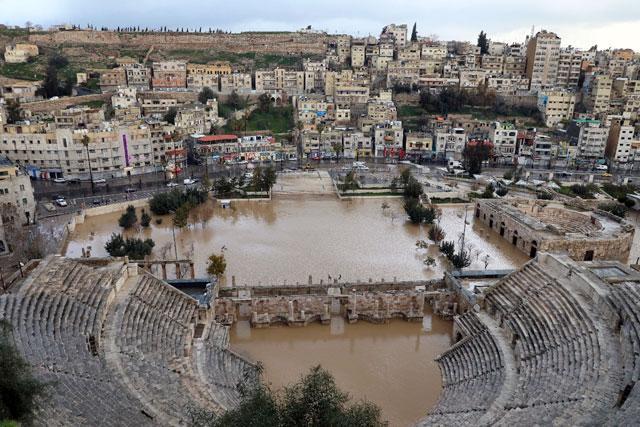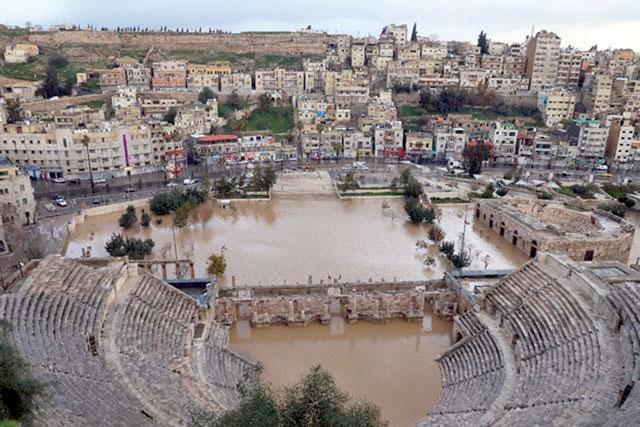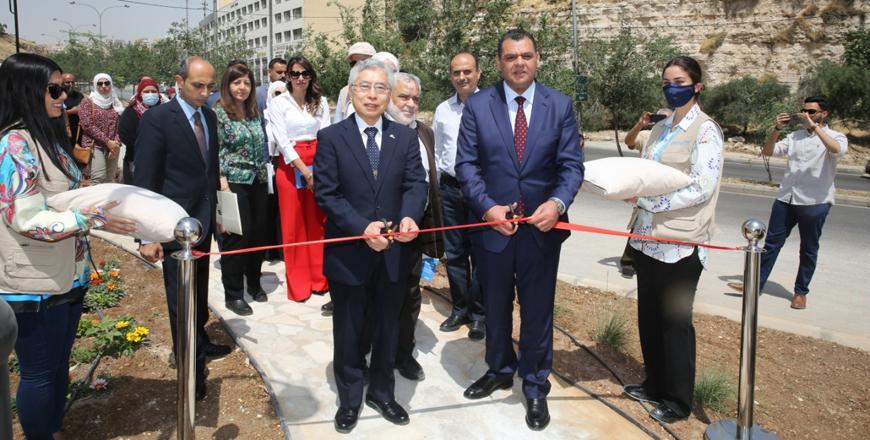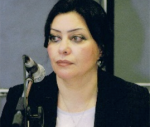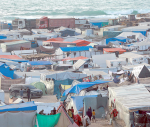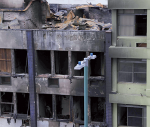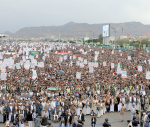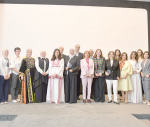You are here
UN COVID response fund to support vulnerable women in Ghor Al Safi
By JT - Mar 03,2021 - Last updated at Mar 03,2021
AMMAN — The United Nations COVID-19 Response and Recovery Multi Partner Trust Fund announced $850,000 in funding to implement a new project in response to the socio-economic impact of COVID-19 in Jordan.
Titled “the Socio-Economic Empowerment of Vulnerable Women in Ghor Al Safi through Improving Access to Safe and Green Public Spaces”, the project comes in line with the UN Socio-Economic Framework in Response to COVID-19 in Jordan and will be implemented jointly by UN-Habitat, the lead Agency, UNOPS and ILO, according to a UN statement.
“The UN will continue supporting the Government of Jordan’s efforts to respond to the impact of COVID-19, which has further deepened existing inequalities, and affected people’s lives, their livelihoods and the economy,” said Anders Pedersen, the UN Resident and Humanitarian Coordinator in Jordan.
“This new funding is part of the ongoing financial and technical assistance from multiple UN agencies to find ways to redress this impact, especially on the most vulnerable population and ensure the socio-economic recovery, while building back better,” Pedersen added.
The project, which will be implemented in partnership with the municipality of Southern Jordan Valley and Zaha Cultural Centre, aims to enhance the socio-economic conditions of vulnerable women living in Ghor Al Safi through the creation of a safe and green public space and livelihood opportunities, said Deema Abu Thiab, the national programme coordinator of UN-Habitat.
It will focus on empowering women in the community by providing training opportunities for entrepreneurial and business development skills to enable the creation of livelihood opportunities, and enabling environment through the development of the safe and inclusive public space, including a market space and the rehabilitation of the adjacent community centre.
The rehabilitated community centre will be used to hold capacity and awareness training seminars, and function as an incubator for small businesses to increase the employability of women in the area, build their capacity, and improve their overall wellbeing.
“The project builds on the extensive and worldwide experience of the UN-Habitat in improving public space as catalysts for developing sustainable and resilient livelihoods through nurturing social cohesion between hosts and displaced communities, fostering local economic development that benefits women and their families, and building skills in order to enhance the empowerment and self-reliance of vulnerable communities,” Abu Thiab added.
Usman Akram, Director UNOPS Operational Hub in Amman, acknowledged the importance of this partnership with the UN-Habitat and ILO in alleviating the socio-economic burdens that have resulted from the COVID-19 pandemic in Jordan.
“UNOPS will leverage its extensive expertise in infrastructure projects, to provide the local community, especially women, with a safe and well-equipped community center and a green public space in order to enable them to have a better life,” Akram said.
“The project brings together the expertise of different UN agencies, including the ILO who bring globally tested and locally adapted models of entrepreneurship development for women to benefit from income-generation opportunities. Moreover, it addresses barriers to women’s participation in the labour force by training women and supporting them to establish a childcare facility to serve the community centre”, said Frida Khan, the coordinator of Jordan’s Decent Work Country Programme in Jordan.
Related Articles
AMMAN — The Japanese government has granted the United Nations Human Settlement Programme (UN-Habitat) $978,709 to support the resilie
AMMAN — In collaboration with Greater Amman Municipality (GAM), UN-Habitat Jordan held a workshop last week to launch the flood risk assessm
AMMAN — Deputy Mayor of Amman Mohammed Al Qaisi on Monday attended the launch of Al Zhour Green Triangle pilot project implemented in the Ra


